'Covid made us appreciate one-to-one contact'
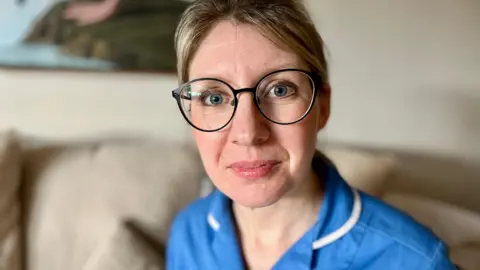 Nikki Fox/BBC
Nikki Fox/BBCBefore the pandemic, Erica Auger was involved in BBC Springwatch as a communications manager for a wildlife charity.
But she'd always wanted to be a midwife and when she re-trained, she was looking forward to the close communication she would have with the women she helped.
Little did she realise her first experience of a maternity department would be dealing with a new disease during a worldwide pandemic.
But what was birthing like for women during Covid, and what lessons have been learned?
Erica's story
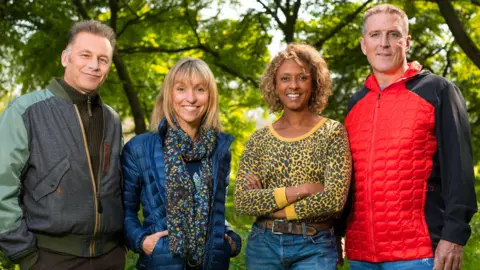 Jo Charlesworth/BBC
Jo Charlesworth/BBCIn 2020, Erica Auger was driving between nature reserves across the East of England.
But she wanted a more "varied" and "passion driven" career - and midwifery had always appealed.
By the time her student midwife placement began at the James Paget Hospital in Gorleston, the pandemic had started and the maternity ward was a different world.
She found her skill as a communicator stifled by a face mask.
"My first feelings were of apprehension," she says.
"It was scary, and we didn't really know what to expect."
She said familiarity and close contact with mothers were key in midwifery and wearing masks made communication extremely difficult.
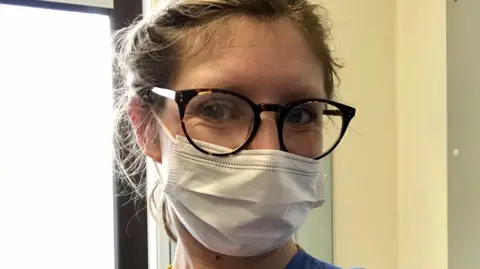 Erica Auger
Erica Auger"We were just worried that they [the patients] weren't getting the care they needed because we didn't know how to provide that care and we didn't know what was coming," she says.
She describes how midwives had to shower after meeting every pregnant woman who tested positive, and said the sheer numbers contracting the virus meant spending entire shifts with wet hair.
But the role of student midwives became "extra special", she adds, as they acted as a "bridge", communicating with birthing partners who were no longer allowed onto wards.
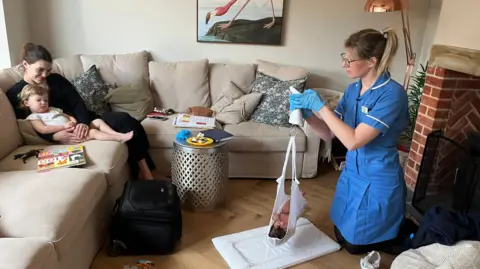 Nikki Fox/BBC
Nikki Fox/BBCMs Auger says she now feels more grateful for the one-to-one contact mothers and midwives are afforded since the relaxation of restrictions.
"Being pregnant is an extremely special time," she says.
"But it can often be a vulnerable time in women's and families' lives. So for us to be able to provide the care we want to - in the way that we want to - is really special."
But are NHS staff worried they'll have to do it all again?
"Being prepared for a second pandemic is like being prepared to have a second baby," Ms Auger says.
"They're never going to be the same as the one before. All you can do is learn from the first and take those tools with you."
Ms Auger says staff built resilience and coping mechanisms, and it was unlikely they would face the same set of circumstances twice.
Emma's story
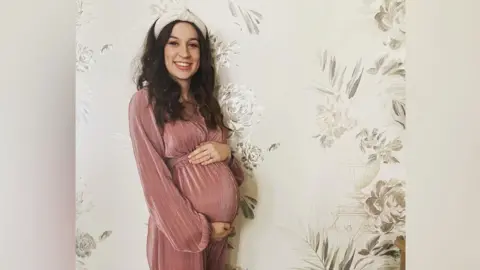 Emma Woods
Emma WoodsEmma Woods describes her first pregnancy and birth, during the pandemic as "isolating".
She said her husband Tom, couldn't join her for any of the scans.
"It was so magical seeing him [baby Arlo] on the ultrasound, I felt really sad that my husband couldn't actually see that," she says.
"Not having birth partners at scans and appointments was something that should never have happened.
"The people that had to have the heartbreaking news that their baby didn't have a heartbeat at an ultrasound were on their own, and they can never go back and share that moment."
The couple also had to take part in antenatal classes online.
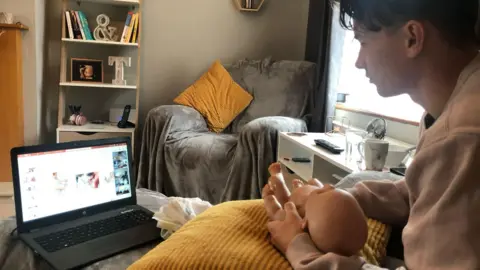 Emma Woods
Emma WoodsArlo spent the first days of his life in the Neonatal Intensive Care Unit (NICU).
Her husband wasn't allowed onto the ward and could only stay on NICU for two hours at a time.
Ms Woods says the only time she could take the paper mask off her face was in bed. Self-isolation, she says, continued at home.
"It was lockdown, so we knew we wouldn't have people round our house," she said.
Ms Woods described being on their own in a bubble with their first child as "scary", but also said it was "nice" that they got time together as a family.
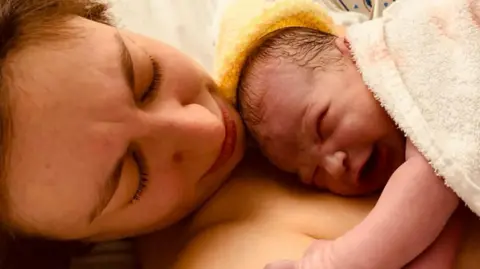 Emma Woods
Emma Woods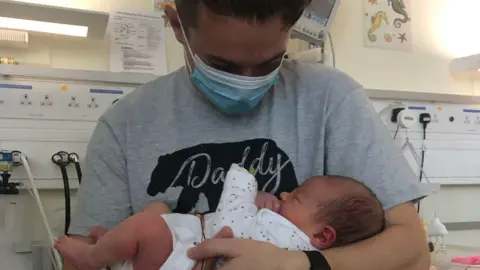 Emma Woods
Emma WoodsAfter the pandemic, Ms Woods missed out on mother and baby groups.
"I think that's so essential," she says. "It gets you out of the house, it gets you talking.
"We were ready to sign up to swimming, but it was six months before he [Arlo] could join."
She said she "really missed out" on early interactions and the chance to make friends, but she turned it into a positive, setting up a "safe space" for parents, called Little Loves Norfolk.
She describes it as a chilled-out baby sensory and play session, where parents and children get together in a room filled with tents, baby swings, dimmed lights and mellow music.
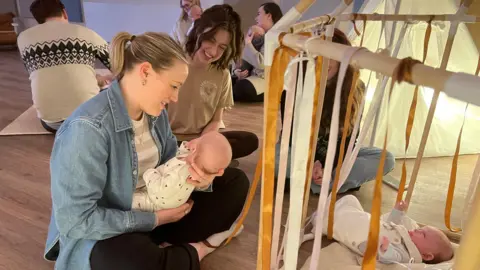 Nikki Fox/BBC
Nikki Fox/BBCMs Woods said giving birth to her second child almost two years ago was a "completely different experience".
She had continuity of care with her midwife and gave birth with much less "anxiety".
Ms Woods said that the world had "come a long way" since Covid and getting out and spending time with her children "was what she loved about being a mum".
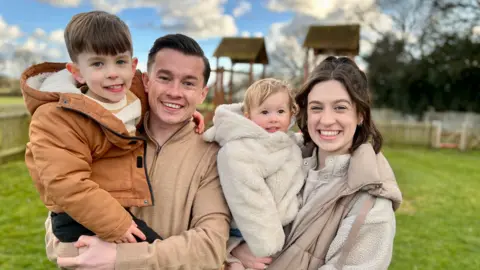 Nikki Fox/BBC
Nikki Fox/BBC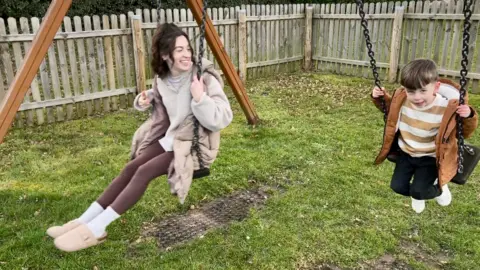 Nikki Fox/BBC
Nikki Fox/BBCFollow Norfolk news on BBC Sounds, Facebook, Instagram and X.
